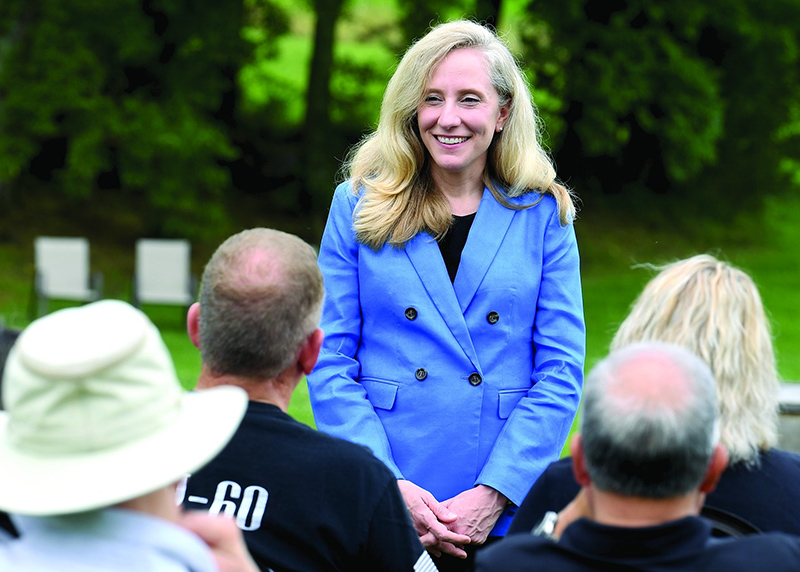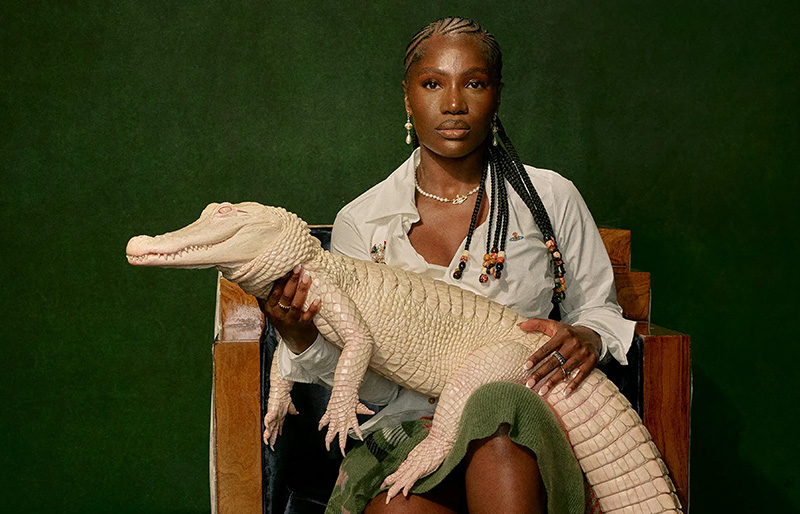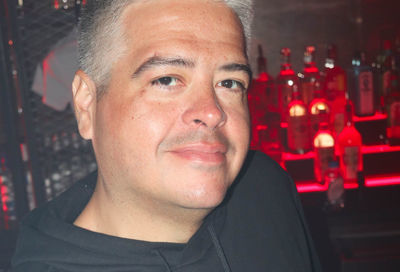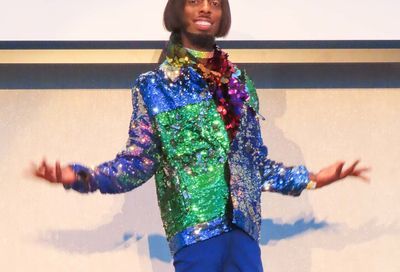Convoluted Caucusing: DC’s Delegate Insanity
Getting elected as a D.C. delegate for this year’s Democratic National Convention is a needlessly complex process.

It’s tough running for a position when most people don’t even know there’s a contest going on. But that’s exactly what John Fanning is up against, as he seeks to become a delegate at this year’s Democratic National Convention.
“I’ve asked several of my neighbors to vote for me, and they tell me, ‘John, we didn’t even know there was a caucus,’” says Fanning. “It’s not well-advertised, and I sense that the establishment candidates want it that way.”
An Advisory Neighborhood Commissioner for Ward 2, Fanning has previously assisted other candidates with their own grassroots campaigns, but has never personally run before. This year, however, he hopes to be at the convention in Philadelphia to cast a vote for former Secretary of State and New York Sen. Hillary Rodham Clinton.
“I thought it was fitting, because I am originally from New York, Clinton was the Senator from New York, and it’s a historical moment in time,” Fanning says, referring to Clinton’s potential to be the country’s first female head of state.
In total, D.C. has been allocated 46 delegates at the national convention, but 26 are superdelegates — distinguished party leaders, elected officials and DNC members not bound to any particular candidate. In addition — and adding needless extra confusion to the process — members of the D.C. Democratic State Committee select five “at-large” delegates, and two spots are reserved for party leaders and elected officials who are pledged to particular candidates.
As a result, only 13 “district-level” delegates, and one alternate, can actually be selected by the average D.C. Democratic voter. Unlike New York, Rhode Island, Maryland, and other states, where delegates appear on the ballot alongside the presidential contenders, with candidate preference clearly listed, D.C.’s selection process for delegates gets even more complex.
Voters must select who they want to represent them at this summer’s national convention. Across the city, 60 people have announced their intention to run as delegates pledged to Clinton, while only 12 have announced their preference for Sen. Bernie Sanders. Delegates are chosen at a caucus on May 21, nearly a month before D.C. voters cast their ballots in D.C’s June presidential primary. The caucus is only open to registered Democratic voters in the city, though the party does allow same-day registration.
If you haven’t dozed off yet, here’s the gist: John Fanning has to compete with 59 other people who also support Clinton for a total of at most 13 slots. And it gets even more convoluted from there. According to the D.C. Democratic Party’s (overwrought) process for delegate selection, seven of those 13 delegate slots are allotted to people living in Wards 1, 2, 6, and 8, and six are allotted to people living in Wards 3, 4, 5, and 7. Due to party rules emphasizing gender parity, six slots are reserved for men, and seven for women. The alternate slot will be reserved for a male from Wards 3, 4, 5, or 7. As such, Fanning is competing for one of three spots reserved for males from Wards 1, 2, 6 and 8. The methods of selection are so oblique, the process so tangled, it’s no wonder the average voter is clueless that there’s even an election.
Once the caucus results are finalized, the delegates are then distributed based on the results of the June 14 primary. It is likely that both Clinton and Sanders will meet the 15 percent threshold for earning delegates, so the delegates will be split proportionally, starting with the top vote-getters from the May 21 caucus — based on both candidate preference and gender, and moving subsequently down the list. Anything beyond a first- or second-place finish on May 21 likely dooms a potential delegate’s chance of getting their ticket to Philadelphia. Not understanding how any of this actually works dooms them further.
The odds are daunting, particularly for those delegates pledged to Clinton, a fact of which Fanning is fully aware.
“My challenge is even more challenging, because I basically have to try to finish second in order to be selected,” he says.
Further complicating the process is that some candidates are running as part of a slate — though such information is not made public by the D.C. Democratic Party. By becoming part of a slate, candidates can shepherd votes from people who are “in the know” about the slate’s existence towards themselves and their allies. Fanning had previously approached other candidates, such as Councilmember Jack Evans (D-Ward 2) and local activist Peter Rosenstein, about the possibility of running as a slate, but they declined the offer, having already formed their own.
“I would prefer voting for delegates on the ballot with the candidates on the day of the primary, as they did in Maryland,” says Fanning. “I think the process would be promoted better. The Board of Elections would be running the process, and not the party. I hope in the future we could convince the party leadership to adopt that process.”
Because he is not part of a slate, Fanning is focused mainly on increasing turnout. In past years, it has been small: while the caucus is technically open to all registered Democrats, fewer than 200 voters typically participate. He has also floated the possibility of “bullet voting,” where voters select only his name from the list of male delegate candidates for Wards 1, 2, 6, and 8, and opt not to use their two remaining votes for other male delegates.
Fanning has knocked on doors in his neighborhood, attended local meetings of Democratic ward groups, traveled to all four wards in the district and stood in front of Giant and Whole Foods supermarkets to inform people of his candidacy. But he also notes that his role as ANC Commissioner gives him a constituent base from which to recruit potential voters, providing an edge over other non-elected delegate candidates.
“I’m promoting the whole process,” he says. “Everyone should know about the caucus. [The Democratic Party] should be bringing out young people, seniors, folks who are new to the country who are registered to vote, bringing them all under the ‘blue’ tent.”
The D.C. Democratic Party has set goals for allocating delegates to ensure that as many groups and constituencies as possible are represented. It has an affirmative action and inclusion plan based on statistics for the overall population of D.C. Since LGBT people are estimated to make up 13 percent of D.C.’s population, the party hopes to have at least five of its 46 members belong to the LGBT community.
Currently, there are seven openly gay men, including Fanning and Rosenstein, running to be pledged delegates for Hillary Clinton — there are no openly LGBT people running to become pledged delegates for Sanders. As such, if the party does not meet its goals with superdelegates or through the delegate process, members of the D.C. Democratic State Committee could opt to select LGBT citizens for the five at-large delegates who will be sent to the convention. But such a development is certainly not guaranteed, meaning May 21 is the best — and perhaps the only — way for LGBT candidates to guarantee themselves a spot on the convention floor.
But whatever the outcome, Fanning is a loyal Democrat, interested in ensuring the party’s success this November. And part of that lies in how successfully members of the party can unite behind their nominee in the general election. Fanning believes he can help mend fences and hurt feelings from this year’s combative primary process, to help Democrats keep their hold on the White House for the next four to eight years.
“Most of my life’s work has been community organizing and bringing people together,” he says. “I think it’s going to take people like myself to bring Bernie Sanders supporters into the Clinton camp in order to defeat Trump, or else he might win.”
The D.C. Democratic Party’s Pre-Primary Caucus will take place on Saturday, May 21, from 10 a.m. to 2 p.m., and then again from 9 p.m. to 10:30 p.m., at the Walter E. Washington Convention Center, 801 Mt. Vernon Pl. NW, between 7th and 9th Streets. Anybody who is a registered Democratic voter may vote in the caucus during either time period. For more information, visit dcdemocraticparty.org.
Support Metro Weekly’s Journalism
These are challenging times for news organizations. And yet it’s crucial we stay active and provide vital resources and information to both our local readers and the world. So won’t you please take a moment and consider supporting Metro Weekly with a membership? For as little as $5 a month, you can help ensure Metro Weekly magazine and MetroWeekly.com remain free, viable resources as we provide the best, most diverse, culturally-resonant LGBTQ coverage in both the D.C. region and around the world. Memberships come with exclusive perks and discounts, your own personal digital delivery of each week’s magazine (and an archive), access to our Member's Lounge when it launches this fall, and exclusive members-only items like Metro Weekly Membership Mugs and Tote Bags! Check out all our membership levels here and please join us today!

























You must be logged in to post a comment.